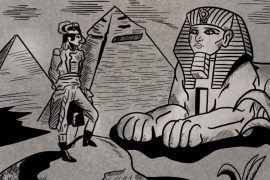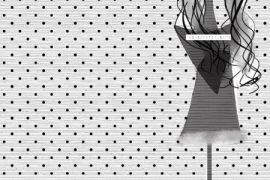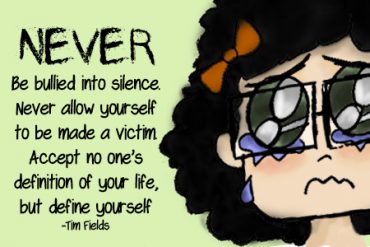The author explores how interrelated it is to be a feminist and a muslim at the same time, rather than having to choose one label or the other.

The only female ruler in the Delhi Sultanate, Razia Sultana was described by author Rafiq Zakaria as being “endowed with all the qualities befitting a king, but she was not born of the right sex and so in the estimation of men all these virtues were worthless”.
The prism through which women’s achievements are looked at is often unreliable because cultural indoctrination is discounted. There was nothing un-Islamic about Razia becoming a queen, a leader in 1200s. Yet, the men around her, in government, found it a difficult pill to swallow. Centuries later, this still remains a challenge.
Reading Mohamed Akram Nadwi’s book on the women scholars in Islam al-Muhaddithat, I cannot help but notice the passion with which women during and just after the life of Prophet Mohammad (PBUH) were so keen to understand, teach and participate in the intellectual formation of Islam. But it was not a one-sided quest because they were welcomed to create this intellectual scaffolding. Contrary to popular, ill-informed notions, they were not ridiculed for being of an inferior intellect or inherently incapable because of the vagaries of their gender.
We find examples in the lives of the women who surrounded the Prophet, in his wives and daughters, who were strong characters. To accommodate such strong women in his life says much about the Prophet himself, who never viewed them as a threat or a source of insecurity. These women were integral in spreading the teachings of Islam, and also helping to compile the Qur’an. Unfortunately, the seventh century seems to be more of a thriving place for women instead of 2016, thanks to centuries of one-sided, male narratives battering the stories and achievements of women. Yet, the current times, if turned on their heads, can also be seen as a fascinating time where feminism and Islam are re-igniting their relationship. The important point to remember is that there is a relationship, whether one sees it as fraught or as being comfortably inclusive.
The divide between Islam and feminism caught my attention a few months back, when during a chance conversation with a journalist who was bullying me into ‘admitting’ that I am a feminist, I found myself hesitant in embracing the feminist tag. I have spent this time reading and having a conversation with myself on why, despite standing for everything that feminism entails, I still find myself distanced from the label. According to social media’s armchair feminists, I should be ashamed at my ignorant self because there is no need to be questioning the label. Also, as a practicing Muslim, I am made to feel that my values are somehow in conflict with Feminism.
In my previous piece, I wrote about the veil existing at least 2,000 years before Islam, yet the post-9/11 persecution of the Muslim identity has led to more women wearing the hijab and even the niqab. In the many layers surrounding the discussion of the veil, the exclusion of non-veiled Muslim women is problematic. Their stories and experiences are viewed separately; sometimes considered as more integrated into the Western societies and being a modern representation of an Islamic woman. It fails us because the hurdle towards accepting that the covering of the head does not veil a woman’s ambitions and intellect is still not overcome. In the convergence of gender and religion, there is a bullying or ‘peer-pressuring’ being made to choose between one identity over the other. Personally, both are important and I see no clash in their coexistence.
Certainly, religion isn’t a woman’s best friend owing to its male architects and storytellers, but there is a place for change and resistance. Women in Islam and other religions have continuously resisted, fought, changed and reclaimed their identities and are still continuing to do so. It is a work in progress. Feminism itself has come in waves and viewing it as a monolith robs us of the nuances and the space to accept that women in different parts of the world can have different struggles and awakenings which are not necessarily synchronized.
I am mildly surprised at the liberty some feminists take in declaring me as an outcast. Who defines the boundaries of the movement, the discussions, and the rules on who is/isn’t a feminist? Is it possible for women to not be feminists?
The tag, to me, is redundant. But I am sure that it has many uses; most specifically, to encourage discussions. These tensions are evident in the groups who claim that feminism is a Western construct, hence incompatible with Islam. Another claims that Islam is oppressive for women, hence incompatible with modernity. Both present a narrow-minded understanding of each other. The concept of equality and respect of the sexes is not a radical Western concept, and the idea of religion and its individual diverse practice is not a threat to women’s rights. We see that in the many examples of powerful women in history and in our lives who, without wearing labels, lent us their spirits.
Having said that, I accept that the balancing of feminism with any religion, not just Islam, is complex. We need to move beyond the binaries of honour/shame and pious/promiscuous in defining moral perimeters of being a woman. Despite the lower status granted to their histories, there are many women in our books and around us whose nuances we need to explore—who they are in between these odes to piety. This is a personal quest to discover the missing stories of the giants on whose shoulders we stand.
I am open to changing my mind about the feminist tag, but instead of detaching ourselves because of this blind spot in feminist discussions, it is meaningful to have conversations and open our minds to challenging perspectives. If I have to choose between my identities as a woman and a Muslim, I choose not to be part of your restrictive society.



